Mark Anthony Neal's Blog, page 681
November 2, 2015
Announcing 'The Black Scholar' 45.4 - On the Future of Black Feminism
 Cover art by Allison Janae Hamilton
The Black Scholar
(Routledge) is proud to announce the launch of a two-part special issue on the future of Black feminism. Our guest editors - Brittney Cooper, Tanisha Ford, Treva Lindsey, Joan Morgan, and Kaila Story - have curated a group of contributors covering new territory within the field of Black feminisms more broadly and the use of Black feminist frameworks within specific disciplines. Our contributors include Drs. Jessica M. Johnson, Kristie Dotson, Susana Morris, and Tamura Lomax. These wide ranging inquiries consider the politics of producing theory, the challenges for articulating a pleasure politic, the shifting demands of queer inquiry and its relationship to black feminism's broader intellectual project. Within disciplines contributors interrogate how Black women's literature aids in the process of imagining Black feminist futures, argue for a reclamation of the importance of spirituality and the sacred, chart a new course for Black feminist inquiry within the discipline of philosophy, and expand our national borders with a consideration of how Black gender politics emerge in transnational spaces. Returning our attention to the intellectual production of Black women and to questions of how gender should figure in liberatory politics is especially salient in the context of the emerging Black Lives Matter Movement. These pieces demonstrate that Black feminism remains a generative and vibrant site of radical knowledge production. Moreover these pieces challenge any existing imperatives that seek to center or recenter Black cisgender, Black male experiences as paradigmatic of Black experience more generally. This two-part special issue models in the best traditions of Black feminism what a queer, anti-patriarchal, trans and cis inclusive Black politic should look like in this moment. Although focused on academic Black feminisms, these works self-consciously have praxes based investments. They demonstrate that the best thinking has an impact on our doing. Taken together these two issues offers an expansive, though by no means exhaustive, look at some of the most exciting and generative new work within the field of Black feminism. This special issue will challenge readers to critically consider the current state and future of Black feminism.
Cover art by Allison Janae Hamilton
The Black Scholar
(Routledge) is proud to announce the launch of a two-part special issue on the future of Black feminism. Our guest editors - Brittney Cooper, Tanisha Ford, Treva Lindsey, Joan Morgan, and Kaila Story - have curated a group of contributors covering new territory within the field of Black feminisms more broadly and the use of Black feminist frameworks within specific disciplines. Our contributors include Drs. Jessica M. Johnson, Kristie Dotson, Susana Morris, and Tamura Lomax. These wide ranging inquiries consider the politics of producing theory, the challenges for articulating a pleasure politic, the shifting demands of queer inquiry and its relationship to black feminism's broader intellectual project. Within disciplines contributors interrogate how Black women's literature aids in the process of imagining Black feminist futures, argue for a reclamation of the importance of spirituality and the sacred, chart a new course for Black feminist inquiry within the discipline of philosophy, and expand our national borders with a consideration of how Black gender politics emerge in transnational spaces. Returning our attention to the intellectual production of Black women and to questions of how gender should figure in liberatory politics is especially salient in the context of the emerging Black Lives Matter Movement. These pieces demonstrate that Black feminism remains a generative and vibrant site of radical knowledge production. Moreover these pieces challenge any existing imperatives that seek to center or recenter Black cisgender, Black male experiences as paradigmatic of Black experience more generally. This two-part special issue models in the best traditions of Black feminism what a queer, anti-patriarchal, trans and cis inclusive Black politic should look like in this moment. Although focused on academic Black feminisms, these works self-consciously have praxes based investments. They demonstrate that the best thinking has an impact on our doing. Taken together these two issues offers an expansive, though by no means exhaustive, look at some of the most exciting and generative new work within the field of Black feminism. This special issue will challenge readers to critically consider the current state and future of Black feminism. +++
Special: Read first issue with free (limited) access! Part one (45.4) is available now online and will be out in print in December 2015. Part two (46.2) is set to be released online in spring 2016 and in print during summer 2016. Feel free to share this press release.
To subscribe, please visit our page with Routledge (Taylor & Francis). As with all institutional subscriptions, personal subscriptions to TBS come with digital access to almost 45 years of our unrivaled archives.
Upcoming Content:Black Moves: New Research in Black Dance Studies, guest edited by Thomas F. DeFrantz and Tara Aisha WillisBlacks And Climate Change, edited by TBS Senior Editor Shireen LewisPoetics, guest edited by David MarriottThe New South AfricaBlack Code Studies, guest edited by Mark Anthony Neal + Jessica Marie JohnsonBlack Film, guest edited by Mia MaskThe Legacy of Chokwe Lumumba, guest edited by Akinyele Umoja Roundtable on Blacks and porn, Global Blackness articles, interviews with leading thinkers such as Adolph Reed Jr., and more...
Published on November 02, 2015 17:49
Generations--The Timeless Fight for Equality: A Conversation with Charlie Cobb & DeRay Mckeeson
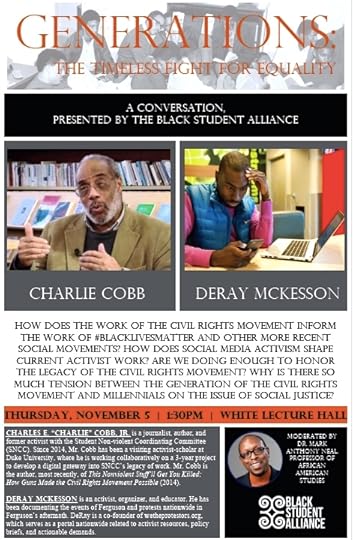
On Thursday November 5, 2015 at 1:30pm in the White Lecture Hall on Duke University's East Campus the Black Student Alliance will host Generations--The Timeless Fight for Equality: A Conversation with Charlie Cobb & DeRay Mckeeson. The conversation will be moderated by Duke University Professor Mark Anthony Neal.
Published on November 02, 2015 12:59
November 1, 2015
Man Booker Prize Winner Marlon James on the Music that Moves Him
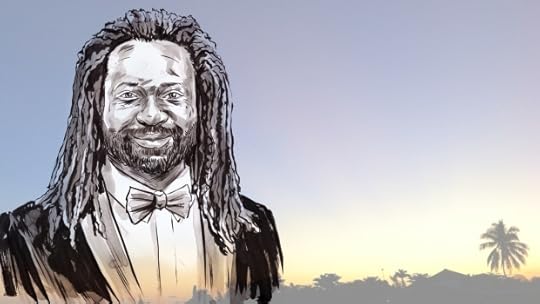 '2015 Man Booker Prize recipient Marlon James is the first Jamaican novelist ever to win the prestigious U.K. literary prize. His novel —
A Brief History of Seven Killings
— jumps off from the real-life assassination attempt on reggae star Bob Marley. Music suffuses both the story, and the author's own life. In today's installment of the q playlist series, James joins Shad to share songs that mean the most to him as a man and artist, as well as their connection to his roots.' +CBC Radio One
'2015 Man Booker Prize recipient Marlon James is the first Jamaican novelist ever to win the prestigious U.K. literary prize. His novel —
A Brief History of Seven Killings
— jumps off from the real-life assassination attempt on reggae star Bob Marley. Music suffuses both the story, and the author's own life. In today's installment of the q playlist series, James joins Shad to share songs that mean the most to him as a man and artist, as well as their connection to his roots.' +CBC Radio One
Published on November 01, 2015 21:10
Big Think: "Lifestyle Choices" Doesn't Explain Why Black Americans are Dying Younger
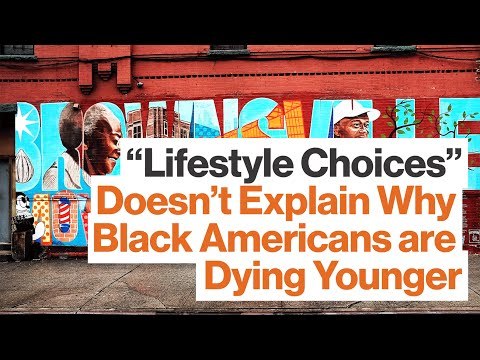 'It's not about making poor choices, says Mary Bassett, Commissioner, NYC Department of Health and Mental Hygiene. It's about the fact that people in the hardest hit neighborhoods (like Brownsville, Brooklyn) don't have enough options to choose from.' -- Big Think
'It's not about making poor choices, says Mary Bassett, Commissioner, NYC Department of Health and Mental Hygiene. It's about the fact that people in the hardest hit neighborhoods (like Brownsville, Brooklyn) don't have enough options to choose from.' -- Big Think
Published on November 01, 2015 20:43
ReelBlack: Dick Gregory on Donald Trump, Ben Carson & Herman Cain
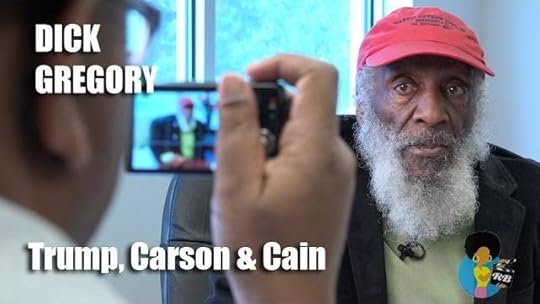 'Comedian/Activist/Author Dick Gregory shares his insights on Presidential candidates Donald Trump and Dr. Ben Carson in this exclusive clip. He also speaks on other Black Republicans Herman Cain and Clarence Thomas.' -- ReelBlack
'Comedian/Activist/Author Dick Gregory shares his insights on Presidential candidates Donald Trump and Dr. Ben Carson in this exclusive clip. He also speaks on other Black Republicans Herman Cain and Clarence Thomas.' -- ReelBlack
Published on November 01, 2015 20:05
Everybody’s Protest Music: Anthems of Life + Love + the Spirit
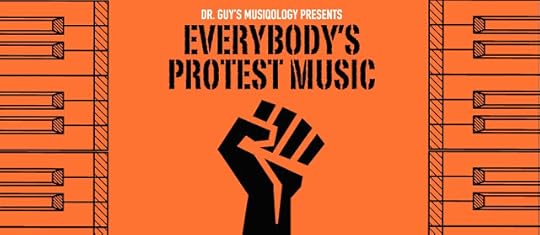 Everybody’s Protest Music: Anthems of Life + Love + the Spiritby Mark Anthony Neal | @NewBlackMan | NewBlackMan (in Exile)
Everybody’s Protest Music: Anthems of Life + Love + the Spiritby Mark Anthony Neal | @NewBlackMan | NewBlackMan (in Exile)“The failure of the protest novel lies in its rejection of life, the human being, the denial of his beauty, dread, power, in its insistence that it is [man's] categorization alone which is real and which cannot be transcended." -- James Baldwin, “Everybody’s Protest Novel” (1949)
“The question is, do we want to be free? Do we dare take our life in our own hands? Do we have the chops for it? To whom do we afford the right to join that ensemble of liberation? Who can afford to improvise? Who could afford not to?” -- Tsitsi Ella Jaji, “The Price of Listening”: James Baldwin, Black Music, and Black Lives” (2015)
Just so it’s not forgotten at a time when so many of the words that James Baldwin breathed have been collapsed into celebratory gestures of mainstream acceptance--truly evidence of things not seen--Baldwin’s most often position was on the defiant margins. The violence that the so-called Protest Novel did to language were among the charges that Baldwin directed at Beecher’s Stowe’s Uncle Tom’s Cabin and Wright’s Native Son--in Baldwin’s formulation Uncle Tom and Bigger Thomas were indeed kin--the failure of all named, resonating in the epigraph above.
To be sure, Guthrie Ramsey, Jr. need not issue such brash sentiments; this an era when protesting the neo-liberal State often means spending a hundred dollars at Whole Foods (or Trader Joe’s for real progressives). But like Baldwin’s essay, Ramsey’s Everybody’s Protest Music, recently presented with the collective Dr. Guy’s MusiQology at the Annenberg Center on the University of Pennsylvania campus, offers critique of a body of work that ostensibly aims, per Baldwin, to “bring greater freedom to the oppressed.”
One of the criticisms directed at contemporary Black artists, by their kinfolk, is that the music is no longer attuned to the “struggles” of Black people, as if the people don’t struggle to be loved, touched, caressed, doted on, inspired, spiritually fed, desired, and indulged. What folks are really asking for is music to protest to--marching music, classic anthems like “Aint Gonna Let Nobody Turn Me Around,” Public Enemy’s “Fight the Power,” or Janelle Monae’s recent “Hell You Talmbout.” There is of course need for such anthems; there is no movement without bodies, and simply put, bodies need something to move to.
Yet to consider a protest tradition, a Black Protest Tradition in this instance, is to consider a tradition that not only inspires folk to take to the streets, but to imagine a future and a freedom, where such instances are no longer necessary. Freedom is about the will to dream it, and the struggle to create the space for that dreaming. Freedom is the late Sekou Sundiata reminding us that we are the dream of “some slave...whenever they got a little space to climb inside their heads and be free.” Protest music, is thus also about finding the collective rhythms, melodies--lower frequencies, to again embrace Iton from the land of The Black Fantastic.
When Tsitsi Jaji asks “The question is, do we want to be free?” she conjures an open query well known in the tradition, finding resonance in Marvin Gaye’s “What’s Going On?” or Les McCann and Eddie Harris’ or Roberta Flack’s (by way of Eugene McDaniels) “Compared to What?” If Everybody’s Protest Music had a center, it was the band’s rendition of the McCann and Harris classic, which has been a regular go-to for contemporaries from MeShell Ndegeocello to John Legend and The Roots to the folk at Coca-Cola. Ramsey’s genius--borne out the the utility of needing to make everybody feel at home during a career that has spanned from the requisite teen-aged Funk band, to choir director, to University of Pennsylvania professor, to this October moment of leader of a seasoned groove collective--was in the arrangement. Indeed Ramsey’s ability to re-imagine the music in ways that bridged generations and genres was a highlight of the evening.
Ramsey opened his set with a fast-ball, the foot-tapper “Match Play” from his most recent The Colored Waiting Room, one of the handful of originals that he performed, along with “Lake Como (The Remix)” and “Someone is Listening.” The latter track, with lyrics from poet Elizabeth Alexander, was commissioned by the NAACP on the occasion of the Civil Rights organization’s 100th anniversary in 2009, and featured vocalist Matre Grant, one of Ramsey’s undergraduate students. Ms. Grant’s contribution was evidence of Ramsey’s collaborative spirit, creating spaces for young musicians, like his daughter Bridgette Ramsey, who provided vocals on the standard “The Wildest Gal in Town,” and creating musical terrain for his seasoned backing musicians to get wide open, particularly guitarist Richard Tucker and saxophonist Matthew Clayton.
The most stellar contributions of the night came from vocalist Abby Dobson, whose work as a background vocalist can be heard on Talib Kweli’s classic “Get By” and his recent “State of Grace.” Dobson was at home in the lead vocalist role on tracks like “Another Man Done Gone” first recorded by Vera Hall in 1940, a performance that also featured violinist Melanie Hill, and which served as an exclamation point to the bodies lost to death and incarceration. Dobson also provided lead vocals on Ramsey’s arrangement of the Negro spiritual, “Wade in the Water,” which featured original poetry from Philadelphia radio personality Stephanie Renee, one of three poets featured during the performance.
Washington, D.C. based poet Abdul Ali read “Elegy (for Troy Davis)” from his striking new collection Trouble Sleeping intertwined with vocals from Dobson on the Pete Seeger co-penned “If I Had a Hammer.” Philadelphia based poet Greg Corbin conjured Nat Turner--the Mystic--with his original “Water,” which was the dramatic peak of Everybody’s Protest Music.
Ramsey closed the show--close to his Chi-Town home--going back to his own roots directing and accompanying Gospel Choirs, with a rendition Twinkie Clark’s “There is a Word.” Joined by ACG and Company, his Chi-town homie Jerry Thompson on the Hammond B-3, and Dobson providing leads, “There is a Word” might have been the most political moment of the night.
In a moment when The Artist is so often forced to parcel out pieces of themselves and their art to the highest bidders (in an effort towards sustainability), there was perhaps no greater protest than Ramsey’s willingness to gesture to some wholeness of himself and his art.
Published on November 01, 2015 09:09
October 31, 2015
Sonics and Visuals--The Foreign Exchange: "Body" from 'Tales From The Land Of Milk And Honey'
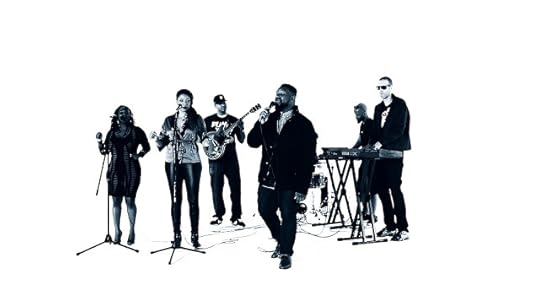 "Body"--Sonics and Visuals from The Foreign Exchange's Tales From The Land Of Milk And Honey, directed by Kenneth Price.
"Body"--Sonics and Visuals from The Foreign Exchange's Tales From The Land Of Milk And Honey, directed by Kenneth Price.
Published on October 31, 2015 18:58
"When October Goes"--Nancy Wilson + Johnny Mercer + Barry Manilow
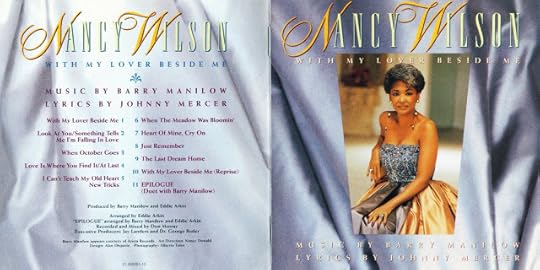 Nancy Wilson says goodbye to the Beauty of Autumn, and perhaps the Beauty of a Summer Love with lyrics from the great
Johnny Mercer
and music from Barry Manilow. From Wilson's 1991 album With My Lover Beside Me.
Nancy Wilson says goodbye to the Beauty of Autumn, and perhaps the Beauty of a Summer Love with lyrics from the great
Johnny Mercer
and music from Barry Manilow. From Wilson's 1991 album With My Lover Beside Me.
Published on October 31, 2015 17:28
PBS NewsHour: Breast Cancer Now as Common Among Black Women as White
 'Breast cancer is now as common among black women in the U.S. as it is in white women, a new report found, and black women are more likely to die from the disease.
Dr. Otis Brawley
, the chief medical and scientific officer for the American Cancer Society, joins Hari Sreenivasan from Atlanta to discuss.'
'Breast cancer is now as common among black women in the U.S. as it is in white women, a new report found, and black women are more likely to die from the disease.
Dr. Otis Brawley
, the chief medical and scientific officer for the American Cancer Society, joins Hari Sreenivasan from Atlanta to discuss.'
Published on October 31, 2015 14:11
#TheRemix: Financial Literacy Advocate Ryan Mack Calls Out RushCard for 'pimping on poor people'
 On this edition of
#TheRemix
, host James Braxton Peterson talks with Financial literacy advocate Ryan Mack about Russell Simmons' prepaid debit card service RushCard. Mack speaks out against predatory lenders and has challenged Simmons for years to stop issuing the card. After the users of the card were denied access to their money after a computer glitch, Mack is urging people to ditch RushCard and switch to a traditional bank account.
On this edition of
#TheRemix
, host James Braxton Peterson talks with Financial literacy advocate Ryan Mack about Russell Simmons' prepaid debit card service RushCard. Mack speaks out against predatory lenders and has challenged Simmons for years to stop issuing the card. After the users of the card were denied access to their money after a computer glitch, Mack is urging people to ditch RushCard and switch to a traditional bank account.
Published on October 31, 2015 13:50
Mark Anthony Neal's Blog
- Mark Anthony Neal's profile
- 30 followers
Mark Anthony Neal isn't a Goodreads Author
(yet),
but they
do have a blog,
so here are some recent posts imported from
their feed.



